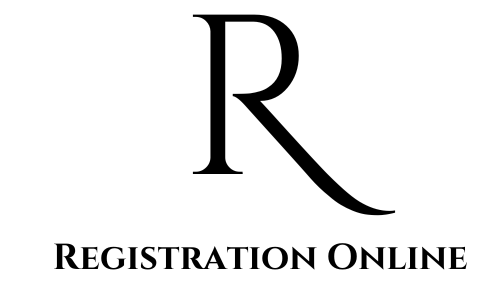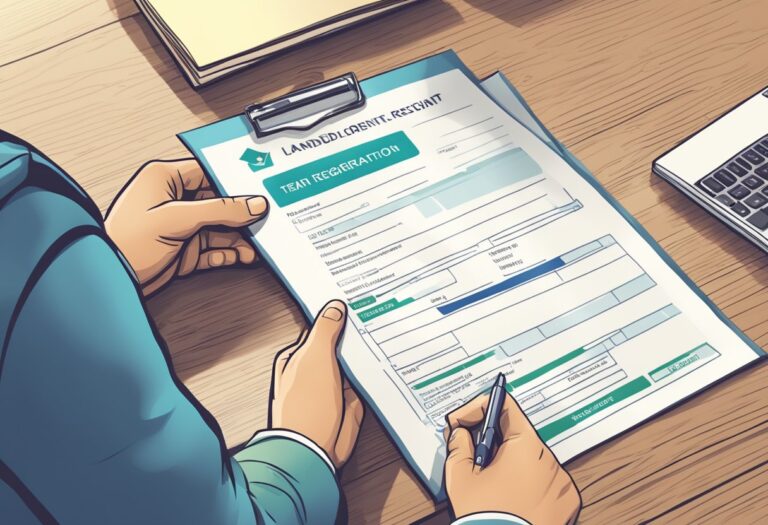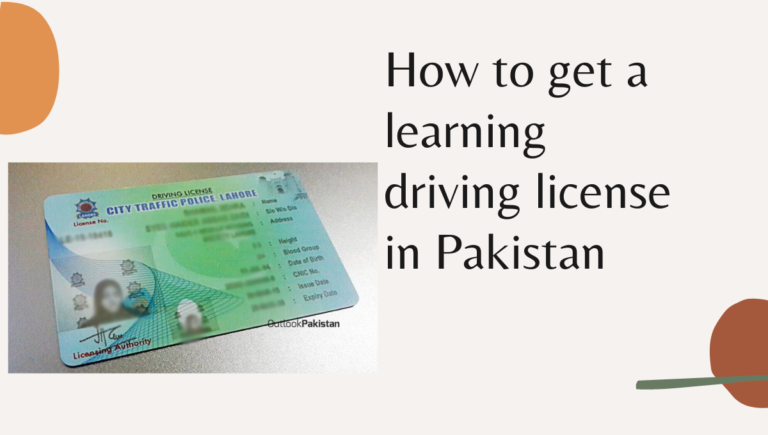Electoral Roll Register Online A Comprehensive Tutorial

Electoral roll register online is a quick and convenient way to ensure you’re eligible to vote in upcoming elections. This process allows you to easily add or update your details from the comfort of your home, saving you time and hassle. In this blog post, we will walk you through the simple steps to electoral roll register online, making sure you can participate in your civic duty without any complications. Whether you’re registering for the first time, updating your information, or ensuring your details are current, our guide will provide all the necessary information to help you complete the online registration process seamlessly.
Being on the electoral roll is crucial for every eligible citizen. It not only grants you the right to vote in local, regional, and national elections, but also serves as a key element of your civic duty. Voting allows you to have a say in who represents you in government and on policies that impact your daily life.
Advantages Of Electoral Roll Register Online
Online registration offers numerous advantages:
- Convenience: Register from the comfort of your home, at any time of the day or night, without needing to visit a physical office.
- Speed: The process is often quicker than mailing in a paper form, and you can complete it in just a few minutes.
- Immediate Confirmation: Many online systems provide instant confirmation that your application has been received, reducing the uncertainty of postal delays.
- Eco-Friendly: Reduces the need for paper forms and postage, making it a more environmentally friendly option.
- Accessibility: Online registration systems are designed to be user-friendly and accessible to people with disabilities.
1. Understanding the Electoral Roll
Definition and Purpose of the Electoral Roll
The electoral roll, also known as the voter register, is an official list of individuals who are eligible to vote in elections. This register is maintained by electoral authorities and is essential for ensuring fair and organized voting processes. The primary purposes of the electoral roll include:
- Verification of Voter Eligibility: Ensuring that only eligible individuals can vote, thereby preventing fraud and maintaining the integrity of the electoral process.
- Facilitation of Voting Logistics: Assisting electoral authorities in planning and managing elections, such as determining the number of ballots needed and the location of polling stations.
- Enhancing Democratic Participation: Providing a clear and accessible way for citizens to exercise their right to vote.
Who is Eligible to Register?
Eligibility criteria for registering on the electoral roll can vary by country, but generally include the following:
- Age: Most countries require individuals to be at least 18 years old to register and vote.
- Citizenship: Typically, only citizens of the country are eligible to register. Some countries may also allow certain non-citizens to vote in specific types of elections.
- Residence: You must usually reside at the address where you are registering. Temporary absences (e.g., for work or study) may not affect your eligibility.
- Legal Eligibility: Individuals must not be legally barred from voting, such as those disenfranchised due to certain criminal convictions or mental incapacity (specifics vary by jurisdiction).
Importance of Keeping Your Details Up to Date
Maintaining accurate and current details on the electoral roll is crucial for several reasons:
- Ensuring Voting Rights: Outdated information can prevent you from receiving important election materials and might even lead to being unable to vote.
- Accuracy in Electoral Processes: Accurate information helps electoral authorities manage elections more effectively, reducing the risk of administrative errors and ensuring that resources are appropriately allocated.
- Personal Convenience: Keeping your details up to date ensures that you receive timely notifications about upcoming elections, polling station locations, and any changes in voting procedures.
- Legal Compliance: In many jurisdictions, it is a legal requirement to update your registration details if you move or change your name.
By understanding these aspects of the electoral roll, you can better appreciate its role in the democratic process and the importance of maintaining your registration status.
2. Preparing for Electoral Roll Register Online

Necessary Documents and Information
Before you begin the online registration process for the electoral roll, gather the necessary documents and information. Having these ready will make the process smoother and quicker.
Proof of Identity
You will need a document that verifies your identity. Acceptable forms of identification typically include:
- Passport: A valid passport is widely accepted as proof of identity.
- Driver’s License: A current driver’s license is another commonly accepted form of ID.
- National Identity Card: In countries that issue them, a national ID card can also be used.
- Other Government-Issued ID: Some countries may accept other forms of government-issued identification.
Proof of Address
You will also need to provide a document that verifies your residential address. Acceptable documents usually include:
- Utility Bill: Recent utility bills (e.g., electricity, water, gas) with your name and address.
- Bank Statement: Recent bank statements showing your name and address.
- Rental Agreement: A lease or rental agreement with your name and address.
- Council Tax Bill: For those in the UK, a council tax bill can serve as proof of address.
- Other Official Documents: Some countries may accept other types of official correspondence that verify your address.
Checking Eligibility Criteria
Before registering, ensure that you meet the eligibility criteria for inclusion on the electoral roll. This typically involves checking the following:
Age
- Minimum Age Requirement: Most countries require individuals to be at least 18 years old to register and vote. Verify the specific age requirement for your country.
Citizenship Status
- Citizen of the Country: Generally, only citizens of the country are eligible to register on the electoral roll. Some exceptions may apply, such as permanent residents being allowed to vote in local elections in certain jurisdictions.
- Dual Citizenship: If you hold dual citizenship, check the regulations to see if both countries allow you to register and vote.
Residential Requirements
- Current Residence: You must typically reside at the address where you are registering. Ensure that your proof of address corresponds to your current residence.
- Temporary Absences: If you are temporarily away from your usual address (e.g., for work, study, or travel), check if you can still register using that address.
- Permanent Address: If you move frequently, use the address where you have the most stable or permanent residence.
By preparing these documents and verifying your eligibility, you can streamline the online registration process and avoid potential delays or issues. This preparation ensures that you meet all the requirements and can successfully register to vote.
3. Step-by-Step Guide to Electoral Roll Register Online
a. Visit the Official Registration Website
To begin the process of registering for the electoral roll online, you’ll need to visit the official registration website. Here’s how:
Provide the URL of the Official Website
- URL: [Insert the official website URL for electoral registration in your country, e.g., www.gov.uk/register-to-vote for the UK.]
Overview of the Website’s Layout
- Homepage: The homepage typically features links to start the registration process, FAQs, and contact information.
- Navigation Menu: Look for sections like “Register to Vote,” “Update Your Details,” or “Check Your Registration Status.”
- Help and Support: A section dedicated to providing assistance, including guides, FAQs, and contact details for further help.
b. Creating an Account
In some cases, you may need to create an account to register. Here’s how to do it:
Steps to Create an Account (if required)
- Find the Registration Section: Click on the “Register to Vote” or equivalent link.
- Sign Up: If prompted, select the option to create a new account.
- Enter Your Details: Provide your name, email address, and create a password.
Verifying Your Email Address or Phone Number
- Verification Email: Check your email inbox for a verification email from the registration site.
- Click Verification Link: Click the link in the email to verify your address.
- Phone Verification (if applicable): Some websites may send a verification code to your phone. Enter this code on the website to confirm your phone number.
c. Filling Out the Registration Form
Once your account is set up, you’ll need to fill out the registration form. This usually involves providing several key pieces of information.
Personal Details
- Name: Enter your full legal name.
- Date of Birth: Provide your date of birth to confirm eligibility.
- Nationality: Indicate your nationality or citizenship status.
Address Details
- Current Address: Enter your current residential address. This should match the proof of address document you will provide.
- Previous Address (if applicable): Some forms may ask for your previous address if you’ve moved recently.
Proof of Identity and Address
- Upload Documents: You may need to upload scanned copies or photos of your proof of identity and address. Ensure these documents are clear and legible.
- Document Verification: Follow any instructions for verifying these documents, such as selecting document types from a drop-down menu.
d. Submitting Your Application
After filling out the registration form, review your information carefully.
Review Your Information
- Double-Check Details: Ensure all personal, address, and identification details are correct.
- Edit if Necessary: Most forms allow you to go back and edit sections before submission.
Confirm and Submit the Application
- Submit Button: Once you’re sure all information is accurate, click the submit button.
- Acknowledgment: You should see an on-screen acknowledgment that your application has been received.
Receiving a Confirmation Email or Reference Number
- Confirmation Email: Check your email for a confirmation message. This email may contain a reference number and further instructions.
- Reference Number: Note down the reference number for future reference. This can be useful if you need to track your application or contact support.
By following these steps, you can complete the online registration process smoothly and ensure that your application is properly submitted and acknowledged.
4. Common Issues and Troubleshooting
Problems with Identity Verification
One of the most common issues during online electoral roll registration is problems with identity verification. Here’s how to address these issues:
Incorrect or Expired Documents
- Ensure Validity: Make sure the documents you are using are current and not expired.
- Clear Scans: Double-check that the scanned copies or photos of your documents are clear, legible, and include all necessary details.
Name Mismatches
- Match Records: Ensure that the name on your documents matches the name you entered on the registration form. This includes matching middle names or initials if they are part of your legal name.
- Official Changes: If your name has recently changed (e.g., due to marriage), ensure you use the updated name on all documents and your application.
Additional Documentation
- Secondary Proof: If the website requests additional proof, be prepared to provide it. This might include additional forms of ID or other official documents.
- Contact Support: If you continue to face issues, contact the support team of the registration website for guidance on acceptable documents or further verification steps.
Issues with the Website or Form Submission
Technical problems with the registration website or issues with submitting the form can be frustrating. Here’s how to troubleshoot these problems:
Browser Compatibility
- Update Browser: Ensure you are using the latest version of your web browser.
- Try Different Browsers: If the website isn’t working on your current browser, try using a different one (e.g., Chrome, Firefox, Safari).
Internet Connection
- Stable Connection: Make sure you have a stable internet connection to avoid interruptions during the registration process.
- Avoid Peak Times: Try registering during off-peak times when the website might be less busy.
Form Errors
- Check for Errors: Review the form for any highlighted errors or missing information. Correct any mistakes and ensure all required fields are filled.
- Save Progress: If possible, save your progress periodically to avoid losing information if there’s an issue with submission.
Technical Support
- Contact Support: Use the website’s contact or support section to report technical issues. Provide as much detail as possible, including screenshots if necessary.
- Help Center: Check the website’s help center or FAQ section for solutions to common technical problems.
What to Do If You Don’t Receive a Confirmation
After submitting your application, you should receive a confirmation email or reference number. If you don’t, follow these steps:
Check Your Email
- Spam/Junk Folder: Look in your spam or junk email folder, as confirmation emails can sometimes end up there.
- Correct Email Address: Ensure you entered the correct email address on your registration form.
Wait for Processing
- Processing Time: Allow some time for your application to be processed. Confirmation emails might not be instantaneous and can take a few hours to a couple of days.
Contact Registration Office
- Follow Up: If you haven’t received a confirmation after a reasonable period, contact the registration office or support team. Provide your personal details and any reference numbers you might have received during the registration process.
Reapply if Necessary
- Double-Check Submission: If you still don’t receive a confirmation and the registration office cannot verify your application, you may need to reapply. Ensure that all details are correct and resubmit your application.
5. After Registration
Once you’ve completed the online registration for the electoral roll, here’s what to expect and how to manage your registration going forward:
How to Check Your Registration Status
After submitting your registration application, you’ll likely want to verify its status. Here’s how:
Visit the Registration Website
- Login: Use your account credentials to log in to the registration website.
- Check Status: Look for a section labeled “Check Registration Status” or similar.
- Confirmation: If your application has been processed, you should see a confirmation message or status update indicating that you are registered to vote.
Contact Electoral Authorities
- Phone or Email: Use the contact details provided on the registration website to inquire about your registration status.
- Reference Number: Have your application reference number handy when contacting authorities for quicker assistance.
When to Expect Your Registration to Be Processed
The processing time for your registration can vary depending on your location and the volume of applications. Generally:
- Processing Times: Typically, you can expect your registration to be processed within a few weeks. However, this can vary, so it’s best to check the estimated processing time on the registration website or contact electoral authorities for more specific information.
What to Do If Your Details Change (e.g., Moving House)
It’s important to keep your registration details up to date, especially if you move or your personal information changes. Here’s how to manage changes:
Update Your Details Online
- Visit the Registration Website: Log in to your account on the registration website.
- Update Information: Look for an option to update your details, such as change of address or name.
- Provide Proof: You may need to upload new proof of address or identity documents if your information has changed.
Notify Electoral Authorities
- Contact Information: Use the provided contact information to inform electoral authorities of your new address or other changes.
- Legal Requirements: In some countries, it’s a legal requirement to update your registration details within a certain period after moving.
Receiving Confirmation
- Confirmation: After updating your details, check for a confirmation email or message indicating that your information has been successfully updated.
- Verification: Your updated details should reflect in your registration status when you check online or contact electoral authorities.
By staying informed about your registration status, understanding processing timelines, and promptly updating your details when necessary, you can ensure that your voter registration remains accurate and up to date. This proactive approach ensures that you can exercise your right to vote without any issues in future elections.
6. Frequently Asked Questions (FAQs)
Here are answers to some common questions about electoral roll registration:
Can I Register for Electoral Roll Online if I’m Living Abroad?
If you are a citizen of a country but currently residing abroad, you may still be eligible to register to vote. Here’s what you typically need to consider:
- Citizenship Requirement: Generally, you must be a citizen of the country to register to vote.
- Residency Status: Some countries allow citizens living abroad to vote in national elections, while others may restrict voting rights to residents only.
- Registration Process: Check with your country’s electoral commission or embassy abroad for specific instructions and eligibility criteria.
- Postal Voting: In many cases, citizens living abroad can vote by mail or proxy, depending on the electoral laws of your country.
How Often Do I Need to Update My Details?
Keeping your registration details up to date is essential for ensuring your eligibility to vote. Here’s what you should know:
- Change of Address: You must update your registration details if you move to a new address. This ensures that you receive election-related correspondence and can vote in the correct constituency.
- Name Changes: If your name legally changes (e.g., due to marriage or divorce), update your registration with your new name.
- Other Changes: Update any other relevant changes to your personal information (e.g., citizenship status) as required by electoral laws.
What Happens if I Miss the Registration Deadline?
Missing the registration deadline can impact your ability to vote in upcoming elections. Here’s what you can do if you find yourself in this situation:
- Check Special Provisions: Some countries allow for late registration under specific circumstances, such as newly eligible voters or those who have recently moved.
- Emergency Proxy Voting: In certain situations, such as unexpected travel or illness preventing attendance at the polls, you may be able to apply for emergency proxy voting.
- Plan for Future Elections: If you miss the deadline for an upcoming election, ensure you register in time for future elections. Familiarize yourself with registration deadlines to avoid missing out on your voting rights.
Additional Resources
For more detailed information or specific questions related to electoral roll registration, visit the official electoral commission website or contact their support team. They can provide guidance tailored to your circumstances and ensure that you are fully informed about your voting rights and responsibilities.
Conclusion
In conclusion, registering for the electoral roll online is not just a civic duty but a crucial step in participating fully in the democratic process. Here’s a recap of why it’s important and some final tips for a smooth registration process:
Recap of the Importance of Registering
- Democratic Participation: Registering ensures that you can exercise your right to vote and have a say in decisions that affect your community and country.
- Legal and Financial Benefits: Being on the electoral roll can also have practical benefits, such as improving your credit score and facilitating certain legal transactions.
Encouragement to Register Online for Convenience
- Convenience: Online registration offers unparalleled convenience, allowing you to register from the comfort of your home at any time that suits you.
- Speed: The process is often faster than traditional paper methods, with instant confirmation of your application receipt.
Final Tips for a Smooth Electoral Roll Online Registration Process
- Prepare Documents: Gather all necessary documents, such as proof of identity and address, before starting the registration process.
- Verify Details: Double-check all information entered on the registration form to ensure accuracy.
- Follow Up: If you encounter any issues or do not receive a confirmation email, contact the electoral commission promptly for assistance.
- Stay Informed: Keep track of registration deadlines and update your details promptly if there are any changes in your circumstances.
By following these guidelines, you can ensure that your registration on the electoral roll is seamless and that you are well-prepared to participate in future elections. Register today and make your voice heard in shaping the future of your community and country.
Additional Resources
For further assistance and information related to electoral roll online registration, here are some valuable resources:
Links to Official Electoral Commission Websites
- [Insert Country Name] Electoral Commission: [URL to the official electoral commission website]
- [Insert Country Name] Government Electoral Services: [URL to government electoral services page]
Contact Information for Further Assistance
- General Inquiries: For general queries about electoral roll registration, contact [Email Address] or [Phone Number].
- Technical Support: If you encounter technical issues during the registration process, reach out to [Technical Support Email] or [Technical Support Phone Number].
Links to Related Articles or Tutorials
- How to Update Your Details on the Electoral Roll: Learn how to update your information if you’ve recently moved or changed your name.
- Understanding Voting Rights and Eligibility: Explore detailed information on who is eligible to register and vote in elections.
- Tips for First-Time Voters: Get prepared for your first voting experience with practical tips and advice.
These resources will provide you with additional guidance and support to ensure a smooth and successful registration process.






